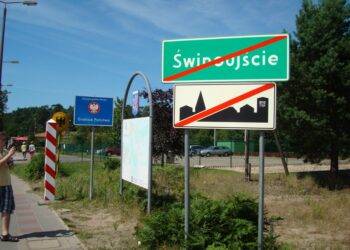Magdalena Biejat, the presidential candidate of Poland’s Nowa Lewica (New Left) party, has made housing reform the cornerstone of her campaign ahead of the May 18 election. Speaking at a housing convention in Włocławek on Sunday, Biejat emphasized her commitment to addressing Poland’s housing crisis through bold measures, including the introduction of a property tax and opposition to government subsidies for mortgage loans.
Housing as a Fundamental Right
Biejat declared that housing should be considered a basic right rather than a commodity for profit. “Housing is meant to be lived in, not turned into a money-making machine,” she stated during her speech. She criticized developers and banks for prioritizing profits over affordability, pledging to stand on the side of ordinary citizens. “I’m the only candidate who puts housing as the number one priority,” she added.
The candidate also took aim at her rivals, asserting that neither the ruling Law and Justice Party (PiS) nor Warsaw Mayor Rafał Trzaskowski had successfully tackled the housing crisis. In contrast, she pointed to successful examples of high-standard social housing projects in Włocławek, arguing that such models could be replicated across Poland without relying on foreign examples from cities like Vienna or Berlin.
Opposition to Mortgage Subsidies
Biejat expressed strong opposition to government subsidies for mortgage loans, describing them as ineffective in addressing systemic issues in the housing market. She announced her intention to veto any legislation proposing such subsidies if elected president. Instead, she proposed introducing “fair mortgage terms” with capped interest rates at 4% and bank margins limited to 1%.
“Don’t worry; banks won’t go bankrupt—they’ll just earn less,” Biejat assured voters while emphasizing that her policies aim to protect Polish families from excessive financial burdens. “Housing is a right, not an investment,” she reiterated.
Support for Property Tax Reform
One of Biejat’s most controversial proposals is the introduction of a property tax targeting owners of multiple properties. Her plan would impose a cadastral tax on third and subsequent properties, with revenues directed toward a fund for social housing development. “Yes to the property tax. The housing crisis can be solved,” she stated confidently during her address.
A cadastral tax, which bases its rate on the value of a property, has long been debated in Poland but remains absent from current policies. Biejat argues that this measure would discourage speculative real estate investments while providing much-needed funding for affordable housing initiatives.
Election Timeline
The first round of Poland’s presidential election is scheduled for May 18, with a potential second round set for June 1 if no candidate secures an outright majority. As the race heats up, Biejat’s focus on housing reform positions her as a distinctive voice among contenders vying for the presidency.
With bold proposals and sharp critiques of existing policies, Magdalena Biejat aims to reshape Poland’s approach to housing and redefine it as a fundamental right rather than an economic commodity—a vision that could resonate with voters grappling with rising costs and limited availability in the real estate marke


















